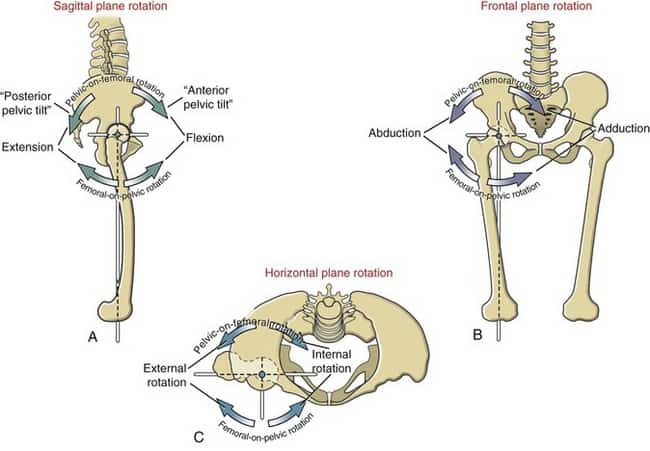

You could also injure yourself by kicking too aggressively and overreaching your body’s current limitations. It could snap very quickly, or other parts of your body may start to overcompensate for the lack of mobility. So, when you go to kick, it’s like trying to snap a very tight rubber band.
#HIP PAIN WHEN ROTATING LEG OUTWARD FULL#
In both situations - having cold muscles and having limited flexibility - you may not have access to a full range of motion in your hips. And it is possible to improve your flexibility, but if you are naturally not very flexible, your iliopsoas muscles will need more slow, gentle stretches and require a bit more time to do all the movements you want to. And there are some people who have more elastin in their bodies, which is the stretchy counterpart to collagen.Īll of our bodies have both, but the ratio of collagen to elastin varies from person to person. There are some people who have more natural stores of collagen in the soft tissues which, explained in simple terms, is like the sticky glue that holds our ligaments, tendons, joints and bones together. But other times, there’s a bigger flexibility issue. Sometimes, your hip pain is a result of going right into a workout when your muscles are cold. If you’re a soccer player, kickboxer, martial arts practitioner, or member of any other sport that involves routine and repetitive kicking movements, then these are the most common culprits that could be causing you hip pain. While it is easy to recognize when your hip is in pain, it can be more difficult to pinpoint the root cause. And I truly believe all of these causes of hip pain in sports with kicking motions can be corrected without the use of medications or drastic interventions.

Many of these issues can be corrected by being more aware of your body, your mobility, your training habits, and your recovery routine. Even when you are setting yourself up for a game-winning kick, you might be thinking more about tightening your core and watching your steps than contracting your iliopsoas muscles.īut, if you kick a ball around day in and day out, and are starting to feel some pain or tightness in your hips, it’s time to start understanding what triggers might be irritating your iliopsoas muscles.īefore I get into some of the potential causes of your hip flexor pain, I’ll say that it’s not all bad news. You unknowingly contract them to sit upright in your seat and lift yourself out of bed in the morning. Usually, you don’t think much about your iliopsoas muscles. Together, these two muscles are called the iliopsoas muscle when referred to together and are referred to as “hip flexors”, and they are at the core of most of the movements we do throughout the day. They connect to the inner side of your pelvic bone and spine, then to the inner groin, and finally to the upper side of your knee or thigh. Your psoas muscle and iliacus muscle are two large muscles that sit side by side on both legs. This is how you walk, run, and kick.īut, if you play soccer, football, or any other sport that repeatedly requires this motion - especially when combined with fast, extreme, or one sided movements and/or fatigue - you may be overusing and tightening those muscles How does the iliopsoas muscle work? Because the muscles that help connect your thigh to your pelvic bone (known as your psoas and iliacus muscles) are literally made to stretch and contract, allowing you to swing your leg forward and backward from your hip joint. That’s not to say it’s unnatural for our bodies to make a kicking motion. And, the bigger and/or more unnatural the motion, the more likely you are to be feeling some soreness or tightness afterward. The truth is, when you participate in any kicking activity repeatedly (liake soccer, football, martial arts, or kickboxing) it can put a lot of strain on your hip flexors, quads, tendons, and joints. In fact, as a physical therapist, I see ‘kickers’ in my office all the time. Do you have unmanageable hip pain after going to the gym for martial arts or kickboxing class? Do you experience hip pain when kicking a soccer ball or a football?


 0 kommentar(er)
0 kommentar(er)
